A short update this week in a short week – but we know you’d miss it if we didn’t do an update. And it’s an interesting one, with gossip and rebellion, and some hard(ish) data too.
Staff changes
It was announced after we published last week that Chris Millward would not be staying on at the OfS as Director for Fair Access and Participation when his contract ends in December. No reasons are given, but it prompted Research Professional to speculate about Nicola Dandridge’s future as her contract also ends then. These are political appointments – as RP point out, Chris was appointed in 2017 by then education secretary Justine Greening, then universities minister Jo Johnson and then OfS chair Michael Barber. Times (and ministers) have changed a lot since then.
Of course there have also been rumours about changes at ministerial level too. Only recently there was a story about a possible imminent reshuffle (which didn’t happen) in which more women would be promoted, and we have seen stories that Michelle Donelan is tipped for promotion. Meanwhile the Mail reported in April that Gavin Williamson was “desperately pleading” to be reshuffled into the chief whip position. And that was before this week’s news on catch up funding for schools.
Given that new appointees to all these posts are likely to be very much “party line” people, and the new Chair of the OfS is already in place and setting the tone for the regulator, it would be surprising if changes made a big difference to HE policy. But we might hope for a change in tone and better communications strategies. Fewer emails late at night on a Friday, for example.
Development budget rebellion
We haven’t had a good parliamentary bust-up for a while. Not that we are missing evenings in front of Parliament TV trying to work out how many rebels it would take to pass the various motions on Brexit. Honestly, we don’t miss it.
The news today was full of a rebellion among conservative MPs over the cuts in the aid budget. The MPs are using an amendment to the ARIA bill, which starts its report stage on Monday, to reinstate the commitment to spend 0.7% of GDP on international aid. These sorts of hijacks are rarely successful, partly because to be successful the speaker would first have to select the amendment, which they often don’t in these circumstances because it is deemed to be “outside the scope” of the bill or because it reopens an issue that has been discussed before in another more appropriate context. But these sorts of parliamentary shenanigans do sometimes encourage the government to promise a rethink rather than risk a very embarrassing defeat in the House of Commons. Note local MP Tobias Ellwood, who has been vocal on this issue, is among the rebels with his name on the amendment.
If you are interested, the amendment papers are here (they are likely to be updated before Monday) and as well as the aid one, include amendments about ARIA being carbon neutral, one about Ministerial conflicts of interest in financial matters and one reversing the proposal in the Bill that ARIA should be exempt from the Freedom of Information Act and public procurement rules.
Fees, funding and rebates
Augar implementation: Following our coverage over the last couple of weeks on rumours about changes to the fees and funding architecture in England and in particular, the focus on the link between outcomes and funding (see more below on outcomes). HEPI has a blog on “mapping the policy influence of Augar”. There are some lovely clear graphics which highlight, through their traffic light colour scheme, where government has been focussing. Not on HE. Yet.
- The analysis highlights that the Government has responded in full to 21% (11) of the recommendations with partial responses to a further 30% (16) of them. This leaves 49% (26) that have yet to responded to in public at this current time. When you combine the yes and positive responses you see that we have a slim majority of recommendations that have received some form of response in a policy or practical manner.
Rebates: The Students’ Unions at LSE and Sheffield University have been leading a campaign for students to receive a rebate for tuition fees for this year. You can read their letter to Gavin Williamson here. They commissioned London Economics to review the options. You can see the analysis here. It’s complicated, and there are lots of scenarios. Note that if the rumours are true (see last week’s policy update) and the government are already looking at changing repayment terms to improve their bottom line, adopting these solutions to “pay” for a rebate would reduce their wiggle room to use it to pay for other things. And one option is increasing the interest rate, when as we reported, there are lots of people arguing to reduce it.
The costs:
- A notional 30% rebate represents approximately £1.39 billion. Of this total, approximately £0.88 billion is associated with students commencing their studies while £0.51 billion is associated with continuing students.
- Illustrating the per student estimates, the rebate for a full-time undergraduate and postgraduate international students were estimated to be between £5,200 and £5,300 each.
- The corresponding estimates for full-time postgraduate English domiciled and EU-domiciled students attending English higher education providers were estimated to be £2,100 and £2,300 respectively.
- Although eligible for student support (and hence considered in detail in the remainder of the presentation), a 30% rebate for full time English-domiciled and EU-domiciled undergraduate students studying in England corresponds to £2,700 per student (and would total approximately £1.1 billion for all full-time and part-time 1st year students and £1.9 billion for full-time and part-time continuing students).
Some interesting facts:
- Under the current funding system in 2020-21 (i.e. the Baseline), the Exchequer contributes approximately £10.656bn per cohort to the funding of higher education. In terms of constituent components, given that the RAB charge (i.e. the proportion of the total loan balance written off) stands at approximately 53.9%, maintenance loan write-offs cost the Exchequer £4.019bn per cohort, while tuition fee loan write-offs cost £5.395bn per cohort. The provision of Teaching Grants to higher education institutions (for high-cost subjects) results in additional costs of £1.242bn per cohort.
- Higher education institutions receive approximately £11.147bn per cohort in net income, made up of approximately £10.093bn in tuition fee income (from undergraduate students), as well as £1.242bn in Teaching Grant income. Against this, institutions contribute approximately £189 million per cohort in fee and maintenance bursaries (predominantly the latter) in exchange for the right to charge tuition fees in excess of the ‘Basic Fee’ (£6,165 per annum for full-time students).
- From the perspective of students/graduates, the average debt on graduation (including accumulated interest) was estimated to be £47,000 (for full-time undergraduate degree students), while the average lifetime repayments made stood at £34,800 for male graduates and £13,100 for female graduates.
- We estimate that approximately 88.2% of all graduates never repay their full loan by the end of the repayment period, while 33.0% never make any loan repayment.
Their conclusions:
- The core cost to the Exchequer of offering a non-means tested tuition fee grant of £2,700 to all undergraduate starting students stands at approximately £1.009 bn (Scenario 2).
- This can be partially offset (by £782 million) by equivalently reducing tuition fee loans (Scenario 1), or totally offset by extending the repayment period to 36 years (Scenario 3); reducing the repayment threshold to £24,500 (Scenario 4); or increasing the maximum real interest rate to 6.2% (Scenario 5).
- Depending on the option selected, there are very considerable differences on which graduates are impacted.
Wonkhe covers the proposal, with Jim Dickinson looking at how progressive the proposals are.
- The important thing that these students’ unions have done for us, via some robust modelling, is to first remind us that maintenance really matters. Putting a cash payment in for students that would hit their actual pocket now would make lots of sense, relieve many of them of some commercial debt, and stimulate economies. And as a gesture of goodwill, it would be inherently fair.
- But crucially, it also cleverly reminds us that in the debate about making England’s higher education system cheaper that will now follow in the run-up to the Autumn’s Augar response, there are important choices to make about the “balance” between the three options of reducing student numbers, reducing spend per head and making the scheme more efficient – and there are further important choices within “making the scheme more efficient” that would impact different graduates in different ways.
- Above all, in this Gordian knot shapeshifter of a hybrid system that we have – which presents as a loan one minute and a graduate tax the next – it reminds us that the more we move the system “back” towards a traditional loan scheme, the more regressive such a move would be.
Graduate outcomes
The Ofs have issued new experimental data on local variations in graduate opportunities. For those of us who have been pointing out for a while that one of the risks of using non-contextualised outcomes data is that it ignores regional differences in employment opportunity and reward, it will come as no surprise that:
- in England, areas with highest concentration of well-paid graduates (those earning over £23,000) are London, Reading, Slough and Heathrow – where 70 per cent of graduates earn over £23,000 or are in further study three years after graduation
- areas with the lowest earnings – where 52 per cent of graduates earn over £23,000 or are in high-level study – are mainly in the Midlands, and North and South-West England, with coastal towns facing particular challenges
So, given all this, why is the OfS proposal, energetically supported by the government, to measure quality at university by absolute measures of employment and salary? It seems bizarre to undermine the messages about levelling up, place-based strategy and local educational needs by encouraging universities through quality measures to send as many graduates as possible away to London or other metropolitan hot spots where they will earn more? You can explore the data using interactive maps, although they aren’t very interactive (you can zoom, in a clunky way), and hover to check your geographical knowledge.
The full report is here. It is light on analysis, it is just a presentation of the methodology, but there is one illustration of how the data could be used:
To illustrate how the groupings could be applied, we used the LEO earnings-based grouping to dig deeper into differences in employment outcomes between black and white graduates. We found that:
- Overall, 60 per cent of white graduates earned above the threshold (around £23,000) or were in higher-level study, compared to 57.5 per cent of black graduates.
- However, this masks some of the difference between the groups, because black graduates were almost four times more likely to live in the areas with the highest graduate opportunity rates.
- When only graduates living in top quintile areas were considered, 73.5 per cent of white graduates earned above the threshold or were in higher-level study, compared to 59.9 per cent of black graduates. This gap is significantly larger than the overall gap.
- Conversely, for black and white graduates in the bottom quintile similar proportions earned above the threshold or were in higher-level study (52.1 per cent compared to 51.9 per cent).
Wonkhe have an article by David Kernohan with graphs, of course. He starts out with a critique of the data itself and then does what you were probably already doing in your head, and visualising what happens if you overlay the locations of universities on the map. Overall he concludes that it’s a start for a conversation.
And just because maps are fun to compare, we remind you about this HEPI report on regional policy and R&D from May. Sadly it doesn’t have any actual maps, but it does have charts of UK R&D and regional business R&D spend (figures 8 and 9). Not surprisingly the regions in the bottom two thirds on both these tables coincide with the big areas of red on the two previous charts.
Equality of access and outcomes in HE
So while we are on the topic of outcomes, the House of Commons Library has a new research paper on equality of access and outcomes in HE in England. These library reports are written to be politically neutral for the benefit of MPs across the House. They contain a useful summary of the data, the policy context and a lot of useful links so are a useful reference point. Here are some of the highlights from the executive summary:
Gender: Women are much more likely to go to university than men and have been for many years. They are also more likely to complete their studies and gain a first or upper second-class degree. However, after graduation, men are more likely to be in ‘highly skilled’ employment or further study just after graduation. Male graduate average earnings are around 8% higher than female earnings one year after graduation. This earnings gap grows substantially over their early careers and reaches 32% ten years after graduation.
Ethnicity:
- White pupils are less likely than any other broad ethnic group to go to higher education. Pupils from Chinese, Indian and Black African backgrounds have the highest entry rates. Black Caribbean pupils have particularly low entry rates to more prestigious universities.
- Black students are more likely to drop out from higher education than other ethnic groups and least likely to achieve a first or upper second-class degree. In contrast, White students are least likely to drop out and most likely to achieve a first or upper second-class degree.
- White graduates have the highest employment rates of any ethnic group. Chinese, Black and graduates from ‘Other’ ethnic groups have the lowest. Pakistani, Bangladeshi and Black Caribbean graduates earn the least, whereas Chinese, Indian and Mixed White and Asian graduates earn the most. The Institute for Fiscal Studies (IFS) has said subject choice is important when looking at differences in graduate earnings by ethnic group. It said Asian students tend to choose “higher-return subjects than their Black and White peers.”
Disability: Students with reported disabilities are more likely to drop out from higher education and less likely to achieve a first or upper second-class degree. Those who reported a mental health disability have the highest drop-out rates. Disabled students are also less likely to be in highly skilled employment or higher study soon after completing their first degree. Students who reported a ’social and communication’ disability (such as Autistic Spectrum Disorder) have particularly low rates.
Socio-economic status
- Pupils eligible for free school meals are much less likely than other pupils to go into higher education, particularly to more prestigious universities. They are also almost twice as likely to drop out before the start of their second year in higher education. Graduates who were eligible for free school meals are slightly less likely to be in employment or further study and they earn around 10% less than other graduates.
- There is a very clear pattern showing that students from areas with higher levels of deprivation are more likely to drop out of university. There are also clear links between deprivation and achievement of first or upper second-class degrees and progression to highly skilled employment or higher study. Students from areas with higher deprivation levels have poorer outcomes than those from areas with low deprivation.
- Analysis of entry rates shows a clear link between current and past levels of higher education in the area the pupil comes from. The entry rate in the top (POLAR –‘Participation of Local Areas’) group – the areas with the highest levels of participation in the past – is more than twice that in the lowest one. There are also higher levels of drop out and poorer attainment among those from the lower POLAR areas. These students, however, have slightly higher levels of employment and/or further study, than those from higher POLAR areas. However, this does not continue to average salaries which are 16-18% higher in the top POLAR group than in the lowest one at both one year and ten years after graduation.
- …Intersectional analysis White boys eligible for free school meals are less likely to go to higher education than any other groups when analysed by gender, free school meal eligibility and broad ethnic groups. White boys who were not eligible for free meals (and hence from less disadvantaged backgrounds) are also less likely than average to go to higher education.
- Drop-out rates are higher among minority ethnic groups (combined) than for White students and this does not change based on the level of deprivation in the local areas they come from. The gap in drop-out rates between male and female students was greater for those from more deprived areas, with male students from more deprived areas more likely to drop out.
- White students from the lowest POLAR groups have a higher level of attainment at university than students from minority ethnic groups. This is true even for those from the top three POLAR groups (combined). The gap between male and female students was greater for those from less deprived areas.
- The gaps in progression rates (graduates entering highly skilled employment or higher study) between White and minority ethnic students from similarly deprived areas have fallen over the past five years. Progression rates for minority ethnic students are the same for those from both higher and lower POLAR groups at around 70%. Similarly, around 70% of White students from lower POLAR groups have entered highly skilled employment or higher study. Progression rates for White students from higher POLAR groups were higher at around 74%.
Subscribe!
To subscribe to the weekly policy update simply email policy@bournemouth.ac.uk. A BU email address is required to subscribe.
External readers: Thank you to our external readers who enjoy our policy updates. Not all our content is accessible to external readers, but you can continue to read our updates which omit the restricted content on the policy pages of the BU Research Blog – here’s the link.
Did you know? You can catch up on previous versions of the policy update on BU’s intranet pages here. Some links require access to a BU account- BU staff not able to click through to an external link should contact eresourceshelp@bournemouth.ac.uk for further assistance.
JANE FORSTER | SARAH CARTER
VC’s Policy Advisor Policy & Public Affairs Officer
Follow: @PolicyBU on Twitter | policy@bournemouth.ac.uk
 The call closes on Friday 11 June 2021.
The call closes on Friday 11 June 2021.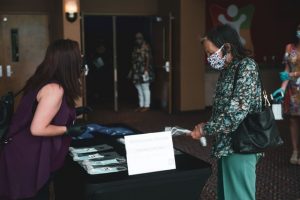 The festival offers a fascinating insight into some of the country’s leading social science research and how it influences our social, economic and political lives – both now and in the future. The
The festival offers a fascinating insight into some of the country’s leading social science research and how it influences our social, economic and political lives – both now and in the future. The 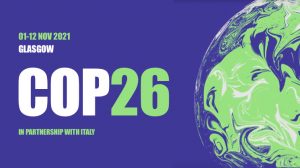
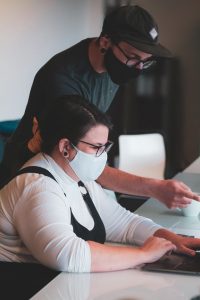 Bournemouth University is an official festival partner and will run several events as part of the festival. Applicants should apply directly to BU’s Public Engagement team, NOT to the ESRC.
Bournemouth University is an official festival partner and will run several events as part of the festival. Applicants should apply directly to BU’s Public Engagement team, NOT to the ESRC.



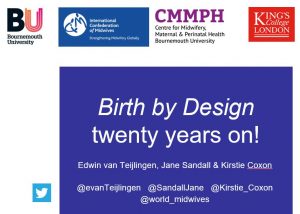
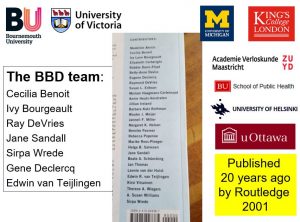
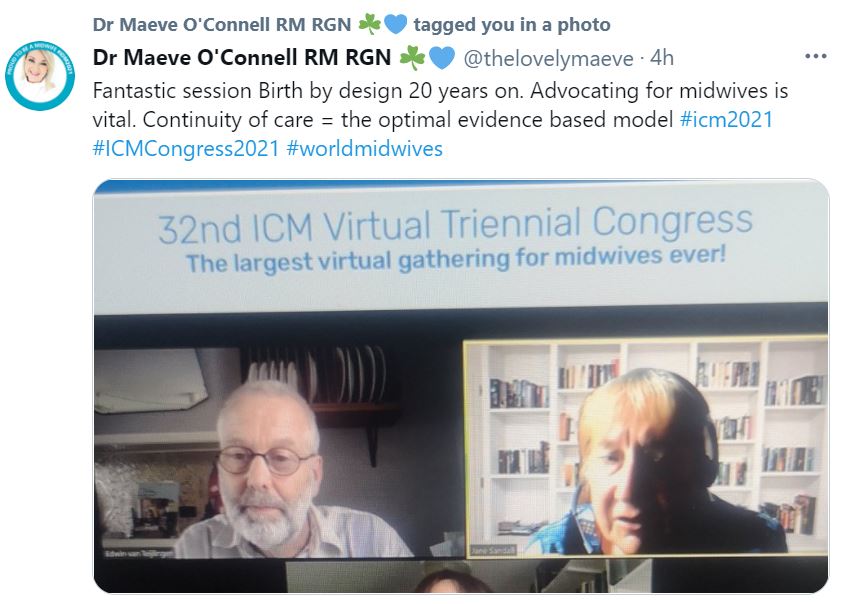
 Understanding and helping to minimise the effects of terrorism on tourism destinations
Understanding and helping to minimise the effects of terrorism on tourism destinations Reading on Screen: enhancing the benefits of reading through engaging with digital technologies
Reading on Screen: enhancing the benefits of reading through engaging with digital technologies The RDS Funding Development Briefings occur weekly, on a Wednesday at 12 noon.
The RDS Funding Development Briefings occur weekly, on a Wednesday at 12 noon.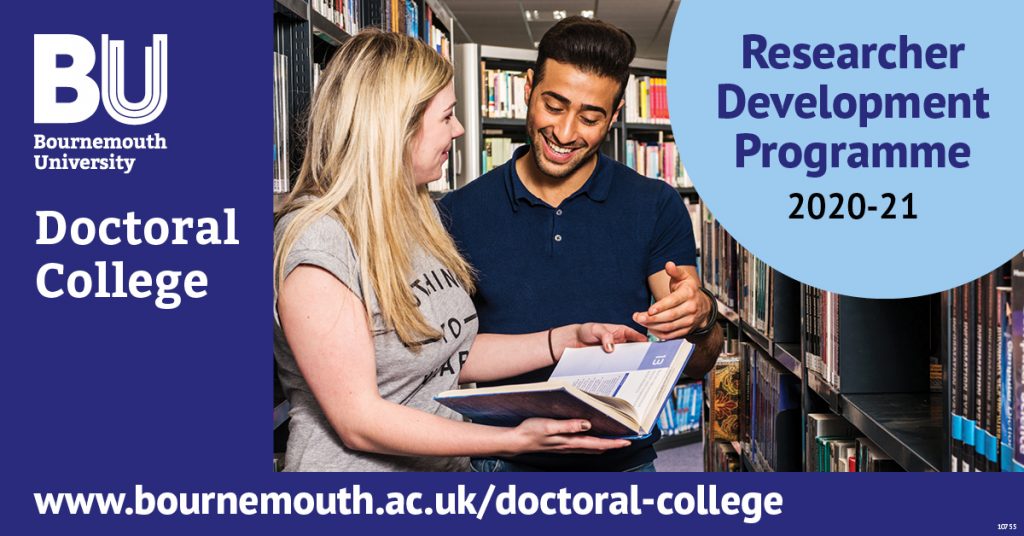











 Beyond Academia: Exploring Career Options for Early Career Researchers – Online Workshop
Beyond Academia: Exploring Career Options for Early Career Researchers – Online Workshop UKCGE Recognised Research Supervision Programme: Deadline Approaching
UKCGE Recognised Research Supervision Programme: Deadline Approaching SPROUT: From Sustainable Research to Sustainable Research Lives
SPROUT: From Sustainable Research to Sustainable Research Lives BRIAN upgrade and new look
BRIAN upgrade and new look Seeing the fruits of your labour in Bangladesh
Seeing the fruits of your labour in Bangladesh ECR Funding Open Call: Research Culture & Community Grant – Apply now
ECR Funding Open Call: Research Culture & Community Grant – Apply now ECR Funding Open Call: Research Culture & Community Grant – Application Deadline Friday 12 December
ECR Funding Open Call: Research Culture & Community Grant – Application Deadline Friday 12 December MSCA Postdoctoral Fellowships 2025 Call
MSCA Postdoctoral Fellowships 2025 Call ERC Advanced Grant 2025 Webinar
ERC Advanced Grant 2025 Webinar Update on UKRO services
Update on UKRO services European research project exploring use of ‘virtual twins’ to better manage metabolic associated fatty liver disease
European research project exploring use of ‘virtual twins’ to better manage metabolic associated fatty liver disease